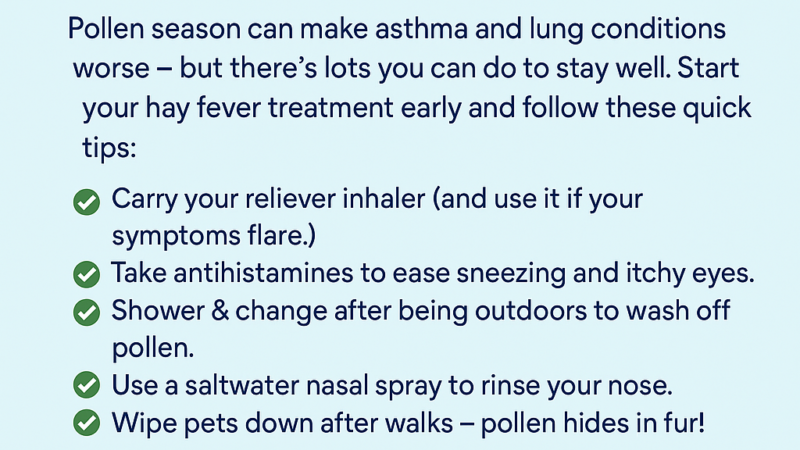
As the weather warms up, we’re entering pollen season – a time when many people experience hay fever or allergic rhinitis. These allergies can worsen asthma or other lung conditions, so it’s important to act early and stay on top of symptoms.
If you or your child has asthma, this is also a great time to check in:
✅ Is your asthma well-controlled?
✅ Are you using your inhaler correctly?
✅ Do you know how to use your nasal spray?
Speak to your local pharmacist or healthcare team if you’re unsure.
💡 Top Tips to Manage Hay Fever
The pollen count is usually highest on warm, windy, or humid days, but there are simple steps you can take to feel better:
🌻 Always carry your reliever inhaler if you have one – and use it if your symptoms worsen.
🌻 Start antihistamines early – they can help ease sneezing, itchy eyes, and other hay fever symptoms.
🌻 Shower, wash your hair and change your clothes after being outdoors to remove pollen.
🌻 Rinse your nose with a saltwater nasal spray to flush out pollen.
🌻 Wipe your pets with a damp cloth after they’ve been outside to stop them bringing pollen indoors.
You can find more helpful advice on the Asthma + Lung UK website.
✅ Don’t Wait for Symptoms to Get Worse
If you usually get hay fever, don’t delay your treatment – starting early can make a big difference.

